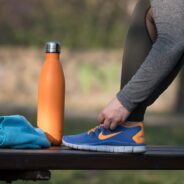More Reason To Exercise Now
In a world where the benefits of exercise are well-documented, it’s easy to find numerous reasons to incorporate physical activity into your daily routine. Beyond the obvious health advantages, exercise offers a multitude of benefits that can significantly enhance your life in various ways.
1. Mental Clarity and Cognitive Function
Exercise isn’t just about building muscles or shedding pounds—it’s also about boosting your brainpower. Studies consistently show that regular physical activity can improve cognitive function, enhance memory retention, and even lower the risk of cognitive decline as we age. Whether it’s a brisk walk, a yoga session, or hitting the gym, exercising regularly can sharpen your focus and elevate your mental clarity. (more…)
Reasons to Stop Being “Nice” at Work
In today’s workplace, the pressure to be nice often overshadows the need for honesty. Many employees find themselves in a perpetual state of politeness, fearing that straightforwardness might be perceived as rudeness or aggression. However, this approach can lead to a host of problems, from unaddressed issues to miscommunication and frustration. The key is to shift the focus from being overly nice to being honest and direct, but with kindness.
Thinking outside the pancake Box
Having gone to bed hungry last Friday night, I woke up starving Saturday morning. When I’m that hungry, nothing sounds better than  sausages, pancakes, grits and an omelet. Well, there were no sausages in the fridge, nor pork of any kind, not even one slice of the applewood bacon that I buy in bulk from Costco. And, no, there was not one can of corned beef hash in the pantry. My desire for a hearty breakfast drove my search for meat. All I could find in the way of “meat” were a few cans of tuna, sardines, and salmon. Sardines for breakfast? Maybe in Scandinavia. Tuna? I think not. But the can of wild Alaskan pink salmon sparked a childhood memory of my mother sautéing onions and peppers , adding a can of salmon, scrambling in an egg or two, serving it over rice and calling it supper. (more…)
sausages, pancakes, grits and an omelet. Well, there were no sausages in the fridge, nor pork of any kind, not even one slice of the applewood bacon that I buy in bulk from Costco. And, no, there was not one can of corned beef hash in the pantry. My desire for a hearty breakfast drove my search for meat. All I could find in the way of “meat” were a few cans of tuna, sardines, and salmon. Sardines for breakfast? Maybe in Scandinavia. Tuna? I think not. But the can of wild Alaskan pink salmon sparked a childhood memory of my mother sautéing onions and peppers , adding a can of salmon, scrambling in an egg or two, serving it over rice and calling it supper. (more…)
Not Just Another Way To Lose Weight
Trying to lose weight but having a tough time? Here are seven common roadblocks that often thwart progress.
1. You’re searching the Web.
It’s sad but true: The World Wide Web is filled with misinformation. Google the words “weight loss” and you’ll get over 220 million results. For reliable weight loss and fitness guidance, rely on credentialed sources like registered dietitians. To find a R.D. in your area, visit http://www.eatright.org/.
2. You’re skipping meals.
It may seem counterintuitive, but trying to push off meals to “save” calories for later will backfire, leading to overeating later in the day. Stick to a schedule of properly spaced meals and snacks to avoid spiking and crashing energy levels. (more…)
The Dangers of Sitting Your life depends on it
In today’s fast-paced, digitally driven world, prolonged sitting has become an almost inescapable part of daily life. Whether it’s working at a desk, commuting, or relaxing in front of a screen, the amount of time we spend seated is on the rise. However, this seemingly benign activity carries significant health risks that are often overlooked. This blog delves into the dangers of sitting and offers practical solutions to mitigate its harmful effects.
The Health Risks of Prolonged Sitting
- Cardiovascular Issues: Extended periods of sitting can lead to poor circulation, increasing the risk of cardiovascular diseases. Blood flow slows, which allows fatty acids to build up in the blood vessels, leading to heart disease and other circulatory problems.
- Obesity and Metabolic Syndrome: Sitting for long stretches can contribute to weight gain and metabolic syndrome. When you sit, your body’s ability to process fats and sugars slows down. This can lead to insulin resistance, a precursor to type 2 diabetes, and weight gain due to the decrease in calorie-burning muscle activity.
- Musculoskeletal Problems: Sitting puts strain on your spine and can lead to poor posture, resulting in back, neck, and shoulder pain. Over time, this can cause chronic conditions and musculoskeletal disorders.
- Mental Health Issues: Sedentary behavior is linked to an increased risk of depression and anxiety. Physical activity is crucial for the release of endorphins, the body’s natural mood lifters. Lack of movement can lead to decreased mental well-being.
- Increased Mortality Risk: Studies have shown that prolonged sitting is associated with an increased risk of premature death. Even if you exercise regularly, long periods of sitting can negate the benefits of your workout.
Practical Solutions to Combat Sedentary Lifestyle
- Incorporate Standing Desks: One of the simplest ways to reduce sitting time is by using a standing desk. These desks allow you to alternate between sitting and standing, promoting better posture and circulation.
- Take Regular Breaks: Set a timer to remind yourself to stand up and move around every 30 minutes. A short walk, some light stretching, or even standing up to make a phone call can make a significant difference.
- Exercise During Work Hours: Incorporate mini-workouts into your daily routine. This can include desk exercises, standing meetings, or even using a stability ball instead of a chair to engage your core muscles.
- Active Commuting: If possible, walk or cycle to work. If you use public transport, consider getting off a stop early and walking the rest of the way. For those who drive, park further away from the entrance to increase your step count.
- Optimize Your Workspace: Arrange your workspace to encourage movement. Place your printer, phone, or other frequently used items across the room to force yourself to get up and move.
- Engage in Leisure Activities: Replace some of your sedentary leisure activities with more active ones. Instead of watching TV, consider going for a walk, gardening, or engaging in a hobby that requires physical movement.
- Monitor and Track Your Activity: Use fitness trackers or apps to monitor your activity levels and set goals for reducing sitting time. These tools can provide motivation and accountability.
- Stretch Regularly: Incorporate stretching into your daily routine. Stretching helps relieve muscle tension, improve flexibility, and reduce the risk of musculoskeletal problems.
Conclusion
While modern lifestyles often necessitate prolonged sitting, it’s crucial to be aware of its dangers and take proactive steps to mitigate its impact. By incorporating simple changes into your daily routine, you can significantly reduce the health risks associated with sitting and improve your overall well-being. Remember, the key is to find a balance that works for you and to keep moving whenever possible.
Want another way to improve your health? Learn about our neurotechnology patches that can help you with balance, mobility, improve your performance and reduce your stress. .. even help you to lose weight … all without having to make any lifestyle changes.
Improving Your Health
Eating well is one of the best ways to improve your health.
Start with Organic Vegetables and Fruits
If possible, grow your own produce. In our summer garden, we have a delightful variety of tomatoes, peppers, okra, squash, eggplants, cucumbers, and sweet potatoes. These homegrown treasures are not only fresher and tastier but also free from harmful pesticides and chemicals. And, of course, there are flowers for beauty and pollination, which also attract beneficial insects that can help protect your garden. (more…)
How Many Cups?
How Much Coffee is Okay for Me? The Ups and Downs of Your Favorite Brew
Coffee isn’t just a morning pick-me-up; it’s a beloved drink for many. But like anything good, it’s best enjoyed in moderation. So, how much coffee is okay for you? Let’s dive into the pros and cons of drinking coffee and figure out the right amount for you.







